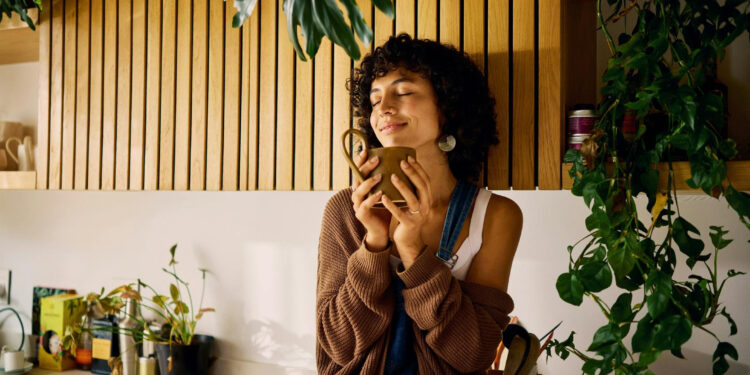When you hear the word “luxury,” you might think of silk robes, five-star resorts, and lavish parties. But luxury doesn’t always have to be extravagant. Some of life’s little joys fit the bill perfectly and can even boost your mental health.
“Incorporating little luxuries into your life is an easy ‘self-hack’ that prioritizes your well-being and enjoyment,” says psychologist Robert Cuyler in an interview with Verywell Mind. “By indulging in small, meaningful pleasures, you can reduce stress, boost your mood, and cultivate a more positive outlook.”
The secret lies in dopamine, the feel-good neurotransmitter responsible for everything from sleep to pain processing. Little luxuries can trigger dopamine increases, making you feel happier and more relaxed.
So, what qualifies as a little luxury? It could be a cozy nightly ritual, a delicious snack, or a favorite comfy item of clothing. The criteria are broad and personal, making it all about what brings you joy.
It’s important to remember that little luxuries are personal and subjective,” says psychologist Robert Cuyler. “What feels indulgent to one person may not have the same effect on another. The key is to find what works for you and make it a consistent part of your self-care routine.”
These small indulgences do more than just lift your mood. They also help you understand what truly makes you happy.
“A treat is actually an opportunity to get to know yourself,” says Gretchen Rubin, author of the bestseller Better Than Before. Rubin, who explores the concept of habits, uses bubble baths as an example. “We’re told in popular culture that baths are this relaxing thing. I actually hate them! To me, they’re messy and boring. Instead, when I hear, ‘You should do something relaxing,’ I think about playing a rock album that I really love.”
How to Incorporate Little Luxuries Into Your Life
Acknowledge the Importance of Self-Care
First, understand that there is nothing selfish about self-care. While little luxuries might not be essential for survival, they play a crucial role in maintaining good mental health. “[Taking care of yourself] is necessary for maintaining good mental health and being your best self for others,” Cuyler emphasizes to Verywell Mind.
Plan and Be Intentional
Next, be intentional about adding these enjoyable moments to your day. Don’t wait until you’re standing in front of a candy bar at the grocery store to debate whether you deserve it. Planning ahead not only gives you something to look forward to but also ensures your act of self-care doesn’t get lost in the hustle and bustle of daily life. Whether it’s a solo sunset drive after work or a decadent dessert after lunch, having a plan makes it easier to indulge without guilt.
Make It a Habit
Once you’ve identified some small pleasures to incorporate into your life, set yourself up for success by making them a habit. According to Wendy Wood, a professor of psychology at the University of Southern California, 43% of all human behavior is habitual. What better habit to form than one that prioritizes your well-being? Wood suggests making self-care easy to incorporate into your routine.
This could mean scheduling a simple walk around the block rather than committing to a full-on hike that you’re more likely to skip. Or it could involve subscribing to a magazine or snack box, so your treats come right to your door, eliminating the need for extra effort on your part.
By prioritizing these small indulgences, you not only boost your dopamine levels and reduce stress but also create a more positive and enjoyable daily life. So go ahead, indulge in those little luxuries — they might just be the key to a happier, healthier you.




































